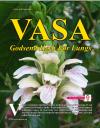
Ginkgo biloba is our oldest species of tree. It is estimated to have lived some 200 million years ago. It is the only surviving species of the family Ginkgoaceae. It is a native of the Far East where the tree was brought back from near extinction through its cultivation for medicinal uses. It was brought to America in the late 1700''s and has primarily been used here as an ornamental.
This is a very hardy, dioecious tree with light green fan shaped leaves. It can reach heights up to 125 feet and is extremely hardy, as it is resistant to many insects, diseases and pollution. Female trees produce fruit in the autumn months. This fruit is plum shaped and orange / tan in color. The leaves and inner seed of the fruit have been reported as having medicinal qual
It is not considered an herb to grow yourself for medicinal usage, as the quantities to obtain the potency levels needed are quite large. It has also been reported as reducing blood viscosity. It''s ability to increase vascular dilation, may help reduce retinal damage due to macular degradation and may reverse deafness caused by reduced blood flow.
The average Ginkgo biloba preparation is a 50:1 extract standardized to 24% of the Ginkgo flavone glycosides. This is made from the leaves and usually extracted with acetone and water. The World wide sales of Ginkgo biloba extract taken from the leaves was reported as reaching an estimated U.S. $500 million in 1991.
Dosages are usually based on the severity of the symptoms and the type of problem. On average administration should last not less than 6 weeks. In very severe cases, at least 8 weeks. However, in cases of tinnitus and vertigo 6-8 weeks is usually considered sufficient.

Extract of Ginkgo biloba is found very useful for Alzheimer's disease; multi-infarct dementia; mental deterioration due to aging; menopausal depression; vascular insufficiency, Peripheral Arterial Occlusive, Vertigo & Tinnitus one capsule of Ginkgo biloba extracts should not be used while taking blood thinning medications such as heparin, warfarin or coumarin derivative. Caution should also be taken with aspirin as anecdotes have been recorded of unfavourable interactions.
Side effects of Ginkgo biloba may be Stomach upset, nausea, diarrhea, dizziness, or headache may occur. If any of these effects persist or worsen, tell your doctor or pharmacist promptly. Seek immediate medical attention if any of these rare but very serious side effects occur: easy bleeding/bruising, fainting, irregular heartbeat, inability to move, muscle weakness, restlessness, seizures, slurred speech, severe headache, weakness on one side of the body, vision problems. A very serious allergic reaction to this product is rare. However, seek immediate medical attention if you notice any of the following symptoms of a serious allergic reaction: rash, itching, swelling, severe dizziness, trouble breathing.
Principal,
Dayanand Ayurvedic College,
Mahatma Hans Raj Marg, G. T. Road,
Jalandhar-144008 (Pb.)






 October 2020
October 2020
 Jan 2020
Jan 2020
 June 2019
June 2019
 January-February 2019
January-February 2019
 Augest-September
Augest-September
 April 2018
April 2018
 November 2017
November 2017
 June 2017
June 2017
 November 2016
November 2016
 September 2015
September 2015
 March 2015
March 2015
 July 2014
July 2014
 January 2014
January 2014
 July2013
July2013
 March 2013
March 2013
 May 2012
May 2012
 May 2011
May 2011
 Sep 2010
Sep 2010
 Jun 2010
Jun 2010
 Feb 2010
Feb 2010
 December 2009
December 2009
 August 2009
August 2009
 June 2009
June 2009
 Feb 2009
Feb 2009
 December 2008
December 2008
 October 2008
October 2008
 March 2008
March 2008
 July 2008
July 2008
 May 2008
May 2008